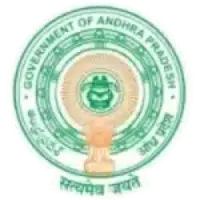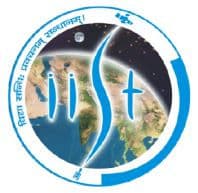Latest Applications Open 2024:
AP PGECET 2024 Mechanical Engineering Syllabus has been Available now. The AP PGECET Mechanical Engineering Syllabus is a comprehensive guide for candidates preparing for the postgraduate entrance examination in Andhra Pradesh. This syllabus covers various essential topics in mechanical engineering, providing a clear roadmap for exam preparation.
Candidates can expect to encounter subjects like Engineering Mathematics, Applied Mechanics and Design, Fluid Mechanics and Thermal Sciences, Materials, Manufacturing, and Industrial Engineering, among others. These topics encompass various concepts, from mathematics and mechanics to thermodynamics and manufacturing processes.
Mechanical Engineering, candidates should focus on each subject within the syllabus, emphasizing core principles and problem-solving skills. Additionally, practicing with previous years’ question papers and mock tests can help candidates familiarize themselves with the exam pattern and refine their time management skills. Overall, a systematic and thorough study of the AP PGECET Mechanical Engineering Syllabus, combined with consistent practice, is essential for candidates to secure admission to postgraduate engineering programs in Andhra Pradesh.
AP PGECET 2024 Mechanical Engineering Syllabus – Available
AP PGECET 2024 Mechanical Engineering Syllabus has been Available now. Click to Download Syllabus PDF.
Engineering Mathematics
Engineering Mathematics is a fundamental branch of mathematics that plays a crucial role in various engineering disciplines. It provides the mathematical foundation and tools necessary for solving complex engineering problems and designing innovative solutions. Topics in engineering mathematics include calculus, linear algebra, differential equations, probability, and statistics, among others.
Engineers use these mathematical principles to analyze, model, and optimize systems, structures, and processes in civil, electrical, mechanical, and other fields. Engineering mathematics is an indispensable part of an engineer’s toolkit, enabling them to bridge the gap between theory and real-world engineering applications.
Linear Algebra: Matrices and Determinants, Systems of linear equations, Eigen values and Eigen vectors.
Calculus: Limit, continuity and differentiability; Partial Derivatives; Maxima and minima; Sequences and series; Test for convergence; Fourier series.
Vector Calculus: Gradient; Divergence and Curl; Line; surface and volume integrals; Stokes, Gauss and Green’s theorems.
Differential Equations: Linear and non-linear first order ODEs; Higher order linear ODEs with constant coefficients; Cauchy’s and Euler’s equations; Laplace transforms; PDEs – Laplace, heat and wave equations.
Probability and Statistics: Probability and sampling theorem, Conditional Probability, Probability Density Function, Mean, median, mode and standard deviation; Random variables; Exponential, Poisson, normal and binomial distributions; Correlation and regression analysis.
Numerical Methods: Solutions of linear and non-linear algebraic equations; integration of trapezoidal and Simpson’s rule; single and multi-step methods for differential equations.
Mechanical Engineering
Mechanical Engineering is a diverse and dynamic field of engineering that revolves around the design, analysis, and manufacturing of mechanical systems and devices. It encompasses various subjects, from thermodynamics and fluid mechanics to materials science and robotics.
Mechanical engineers are pivotal in creating innovative solutions for automotive, aerospace, energy, and manufacturing industries. Their work is essential in developing cutting-edge technology and improving existing systems to enhance efficiency and sustainability. Mechanical Engineering offers exciting career opportunities and the chance to shape the future through technological advancements.
Applied Mechanics and Design
Applied Mechanics and Design is a fundamental engineering discipline that deals with the practical application of mechanics principles to design and analyze various mechanical systems and structures. This field is crucial in developing innovative products, machines, and safe, efficient, and reliable structures.
It encompasses solid mechanics, dynamics, materials science, and kinematics, offering engineers the tools to create and optimize designs for everything from mechanical components to large-scale structures. Applied Mechanics and Design are essential in various industries, including aerospace, automotive, civil engineering, and manufacturing, contributing to advancements in technology and infrastructure.
Engineering Mechanics: Free body diagrams and equilibrium; trusses and frames; virtual work; kinematics and dynamics of particles and of rigid bodies in plane motion, including impulse and momentum (linear and angular) and energy formulations; impact.
Strength of Materials: Stress and strain, stress-strain relationship and elastic constants, Mohr’s circle for plane stress and plane strain, thin cylinders; shear force and bending moment diagrams; bending and shear stresses; deflection of beams; torsion of circular shafts; Euler’s theory of columns; strain energy methods; thermal stresses.
Theory of Machines: Displacement, velocity, and acceleration analysis of plane mechanisms; dynamic analysis of slider-crank mechanism; gear trains; flywheels.
Vibrations: Free and forced vibration of single degree of freedom systems; effect of damping; vibration isolation; resonance, critical speeds of shafts.
Design: Design for static and dynamic loading; failure theories; fatigue strength and the S-N diagram; principles of the design of machine elements such as bolted, riveted, and welded joints, shafts, spur gears, rolling and sliding contact bearings, brakes, and clutches.
Fluid Mechanics and Thermal Sciences
Fluid Mechanics and Thermal Sciences are vital branches of engineering and physics that delve into the behavior of fluids (liquids and gases) and the principles governing heat transfer and energy conversion. Fluid Mechanics studies fluid flow dynamics, essential in designing aircraft, pipelines, and more. Thermal Sciences explore heat transfer mechanisms critical for efficient energy utilization and climate control. These fields underpin numerous industries, from aerospace to energy production. A profound understanding of Fluid Mechanics and Thermal Sciences is crucial for engineers and scientists striving to solve complex problems and advance technology in various applications.
Fluid Mechanics: Fluid properties; fluid statics, manometry, buoyancy; control-volume analysis of mass, momentum and energy; fluid acceleration; differential equations of continuity and momentum; Bernoulli’s equation; viscous flow of incompressible fluids; boundary layer; elementary turbulent flow; flow through pipes, head losses in pipes, bends etc.
Heat-Transfer: Modes of heat transfer; one dimensional heat conduction, resistance concept, electrical analogy, unsteady heat conduction, fins; dimensionless parameters in free and forced convective heat transfer, various correlations for heat transfer in flow over flat plates and through pipes; thermal boundary layer; effect of turbulence; radiative heat transfer, black and grey surfaces, shape factors, network analysis; heat exchanger performance, LMTD and NTU methods.
Thermodynamics: Zeroth, First and Second laws of thermodynamics; thermodynamic system and processes; Carnot cycle. Irreversibility and availability; behaviour of ideal and real gases, properties of pure substances, calculation of work and heat in ideal processes; analysis of thermodynamic cycles related to energy conversion.
Applications: Power Engineering: Steam Tables, Rankine, Brayton cycles with regeneration and reheat. I.C.
Engines: air-standard Otto, Diesel cycles. Refrigeration and air-conditioning: Vapour refrigeration cycle, heat pumps, gas refrigeration, Reverse Brayton cycle; moist air: psychrometric chart, basic psychrometric processes.
Turbomachinery: Peltonwheel, Francis and Kaplan turbines – impulse and reaction principles, velocity diagrams.
Manufacturing and Industrial Engineering
Manufacturing and Industrial Engineering is a multidisciplinary field focused on optimizing and enhancing industrial processes and systems. It integrates principles from engineering, management, and technology to improve production efficiency, product quality, and overall operational performance. Professionals in this field work on designing, analyzing, and managing manufacturing systems, ensuring cost-effectiveness and sustainability. Manufacturing and Industrial Engineers play a crucial role in various industries, from automotive to aerospace, by implementing innovative solutions to streamline production processes and meet the demands of a rapidly evolving global market.
Engineering Materials: Structure and properties of engineering materials, heat treatment, stress-strain diagrams for engineering materials.
Metal Casting: Design of patterns, moulds and cores; solidification and cooling; riser and gating design, design considerations.
Forming: Plastic deformation and yield criteria; fundamentals of hot and cold working processes; load estimation for bulk (forging, rolling, extrusion, drawing) and sheet (shearing, deep drawing, bending) metal forming processes; principles of powder metallurgy.
Joining: Physics of welding, brazing and soldering; adhesive bonding; design considerations in welding.
Machining and Machine Tool Operations: Mechanics of machining, single and multi-point cutting tools, tool geometry and materials, tool life and wear; economics of machining; principles of non-traditional machining processes; principles of work holding, principles of design of jigs and fixtures.
Metrology and Inspection: Limits, fits, and tolerances; linear and angular measurements; comparators; gauge design; interferometry; form and finish measurement; alignment and testing methods; tolerance analysis in manufacturing and assembly.
Computer Integrated Manufacturing: Basic concepts of CAD/CAM and their integration tools.
Production Planning and Control: Forecasting models, aggregate production planning, scheduling, and materials requirement planning.
Inventory Control: Deterministic and probabilistic models; safety stock inventory control systems.
Operations Research: Linear programming, simplex and duplex method, transportation, assignment, network flow models, simple queuing modes, PERT, and CPM.

As a dedicated Biology Science graduate, I’m passionate about sharing the latest updates in national and state entrance exams through my blog. I aim to keep aspiring students informed about exam trends, important dates, and changes in syllabi. With a keen interest in education, I strive to offer valuable insights for students navigating the competitive landscape of entrance examinations and admission tests. Stay updated with me.


